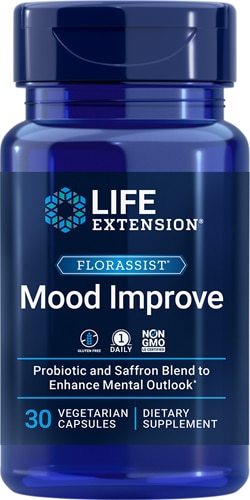This month, the Society of Happy People (SOHP) gives folks a reason to smile with a special occasion: Happiness Happens Day, taking place on August 8, 2021. And it’s certainly needed! A national tracking study by
NORC at the University of Chicago found that only 14 percent of Americans consider themselves very happy – the unhappiest they've been in 50 years.
But there's hope. This year,
Happiness Happens Day coincides with
Hunt for Happiness Week (August 1-7, 2021). What better time to reflect on your own happiness and what you can do it foster it?

Why is happiness important?
Happiness not only feels good, it actually has been shown to promote better immunity and healing, pain reduction, stress relief, heart health, clearer thinking, problem-solving and increased creativity.
The thing is, happiness isn't a constant feeling. Life’s ups and downs can feel complicated and exhausting at times. Joy comes in patches. Happiness is made up of moments. So learning to nurture these moments is key to creating an overall positive mindset that makes happiness a habit.
What is emotional happiness?
Happiness is a positive emotional state brought on by pleasurable experiences. Big fireworks moments of joy and ecstasy are hard to miss. But are everyday moments like contentment, appreciation and satisfaction as noticeable? Maybe not so much. Yet, these smaller moments are the building blocks to leading a happier life. It’s important to learn to fine-tune your emotional meter to pick up on these more subtle, diverse forms of happiness using emotional intelligence.
Can we cultivate our own happiness?
Absolutely. Becoming happier is something we can do.
Why is it needed? Scientists have discovered that humans have a negativity bias that makes negative experiences stand out as a residual trait for survival. This feature makes it harder to keep a happy mindset. But the brain can rewire itself to create positive circuits.
Positivity training is one way to achieve that. Here are some ways to approach it.
How to feel happy
Let happiness build slowly. Be the tortoise, not the hare. Slow and steady wins the race; things made with a strong foundation tend to last.
Practice self-compassion.
Self-compassion is a great place to start. Embracing your whole self with kindness softens the outer shell and lets light in so other exercises can work. If you're sad, that’s OK. If you're angry, that’s OK, too. Accept yourself where you are in each moment. Try practicing self-soothing. Give yourself a hug – or 10.
Talk kindly to yourself. Self-compassion releases oxytocin in the brain, creating feelings of warmth, safety and tenderness.
Stop comparing.
In a world of social status, it's easy to get caught up in other people's supposed happiness. Don't look outward at what you think others are experiencing. Instead, reconnect with your own emotions, thoughts and sensations with mindfulness practices.
Practice gratitude.
Gratitude is another way to create more happiness in life as it encourages you to be thankful for what you already have. Using a gratitude journal daily will help to recognize the good things in life. The air you breathe, the food on your plates, the job you have – these are all gifts. Try listing five things before bed every night to develop
gratitude.
Look for positivity.
Leaders in the Law of Attraction, Abraham and Ester Hicks recommend keeping a Book of Positive Aspects to encourage a positive outlook. They recommend filling it with things you love and positive reflections on any subject in order to train yourself to look or the good.
Start a positivity journal, and carry with you. Note positive aspects of people you meet or see or about the places you're visiting. Once you’ve identified these things, see if you notice more positivity as you go about your day.
Gift yourself some fun.
Once you're finding more to feel optimistic about, try taking it a step further by making a to-do list of your favorite activities. Anything you enjoyed in the past or want to try in the future counts. Pick one activity a week (or a day), and savor the pleasurable sensations that come from doing what you love.
Cultivate relationships and spread love.
During the Harvard Study on Adult Development, researchers discovered an interesting aspect of happiness. After following participants for almost 80 years, they found the people who took the time to cultivate meaningful relationships with family, friends and their communities were happier and lived longer, healthier lives.
Make a list of the people who matter in your life. Who is important to you, and why? Jot it down. Reach out to them regularly with a call or a text. Let loved ones know why they matter to you. Sharing your gratitude in this way will help you feel more connected, but it will also leave friends feeling more love.
Ask yourself what matters.
What drives you? What moves you to care? People who lead a purposeful life are fundamentally happier. This is what the Dalai Lama calls "warm-heartedness," and you get it from giving back to others and extending compassion.
Look out for ways to be of assistance, no matter how small. Allow yourself to connect at a deeper level with those around you. It's said that when you help others, the joy lasts longer than when you think only of yourself. So if you still aren't getting those happy vibes, start giving back. Bringing joy to others is a surefire way to feel it too.
Featured product






